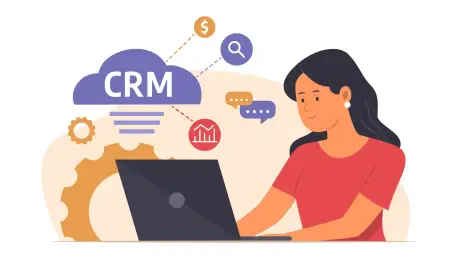Setting the Stage for AI-Driven CRM Excellence
In today’s fast-paced business landscape, where customer expectations for personalization and speed continue to soar, companies are grappling with the challenge of balancing efficiency with a human touch. Imagine a scenario where marketing campaigns are crafted with pinpoint accuracy, sales teams anticipate buyer needs before a meeting even begins, and B2B transactions close without the usual delays caused by manual processes. This is the promise of artificial intelligence (AI) in customer relationship management (CRM), and HubSpot stands at the forefront of this transformation. As a leading CRM platform, HubSpot has integrated AI across its core hubs to address these modern demands, redefining how businesses operate in a competitive environment.
The focus of this review centers on the AI-driven updates unveiled during HubSpot’s Fall Spotlight showcase at INBOUND, emphasizing a hybrid human-AI collaboration model. These innovations aim to streamline repetitive tasks, allowing teams to prioritize strategic efforts and relationship-building. This analysis delves into the specifics of these tools across Marketing, Sales, and Commerce Hubs, evaluating their performance and potential impact on business operations.
In-Depth Analysis of AI Features and Performance
Marketing Hub: Redefining Campaign Precision
At the heart of HubSpot’s Marketing Hub lies a commitment to blending human creativity with AI precision through a framework called “The Loop.” This growth playbook empowers marketing teams to design and execute campaigns with unprecedented efficiency. A standout feature, Marketing Studio, offers an AI-driven visual canvas that facilitates collaborative planning. It provides strategic recommendations drawn from historical data, ensures brand consistency in content creation, and optimizes scheduling for maximum impact, making campaign management a seamless process.
Another key advancement is the Segments + Personalization tool, which harnesses AI to pinpoint high-intent audiences using CRM and web data. This capability allows for the delivery of tailored web content, targeted calls-to-action, and customized emails that resonate with specific user segments. By aligning content with user behavior, businesses can drive higher engagement rates without the guesswork typically associated with audience targeting.
Complementing these features is Breeze, an AI tool dedicated to email marketing. It generates unique, personalized content for each recipient while predicting the best times for engagement, ensuring emails land in inboxes when recipients are most likely to interact. This level of customization and timing precision marks a significant leap forward in reducing manual effort and boosting campaign effectiveness.
Sales Hub: Enhancing Relationship Dynamics
In a market where buyers increasingly rely on independent research, HubSpot’s Sales Hub leverages AI to shift the focus of sales teams toward meaningful interactions. One notable feature automates meeting preparation by aggregating relevant context from past communications, company profiles, and deal histories. This ensures sales reps enter discussions armed with actionable insights, saving time and enhancing the quality of engagements.
During meetings, AI takes on the role of a silent assistant, capturing critical points and action items. Post-meeting, it generates detailed summaries that enable personalized follow-ups, ensuring no detail is overlooked. This functionality not only accelerates the sales cycle but also strengthens trust with prospects by demonstrating attentiveness to their specific needs.
Additionally, the Sales Hub incorporates AI-powered deal risk identification, analyzing conversation transcripts to detect potential issues in the pipeline. By flagging concerns early, such as hesitations or objections, this tool equips teams to address problems proactively, safeguarding revenue streams. Such predictive capabilities underscore the potential of AI to transform sales from a reactive to a strategic function.
Commerce Hub: Streamlining B2B Deal Closures
B2B transactions often face bottlenecks due to slow quoting processes, a challenge HubSpot’s Commerce Hub tackles with an AI-powered Configure, Price, Quote (CPQ) tool. By automating complex quoting tasks, this feature enables sales reps to produce professional, branded quotes swiftly, drawing on conversation details and deal context. The result is a faster, more polished process that minimizes delays and reduces the risk of deal abandonment.
Supporting this is a virtual closing agent that addresses buyer inquiries about pricing and product details in real time. This AI-driven assistant enhances the customer experience by providing immediate clarity, eliminating the need for back-and-forth communication. It represents a practical solution to maintaining momentum in deal negotiations, especially in high-stakes B2B environments.
The Commerce Hub also introduces flexible approval workflows, ensuring quotes are routed to the right stakeholders efficiently. This adaptability streamlines internal processes, allowing teams to focus on closing deals rather than navigating administrative hurdles. Together, these innovations position the Commerce Hub as a powerful ally in accelerating transaction timelines and improving client satisfaction.
Industry Trends and Real-World Impact
Beyond individual features, HubSpot’s AI updates reflect a broader industry shift toward hybrid human-AI models in CRM. This approach prioritizes reducing manual workloads, freeing up teams to concentrate on high-value tasks such as strategy and customer engagement. As businesses face mounting pressure to deliver personalized experiences at scale, tools like these are becoming indispensable for staying competitive.
Real-world applications of these AI tools span various sectors, from crafting hyper-targeted marketing campaigns to streamlining sales follow-ups with tailored insights. For instance, a retail company might use Breeze to send personalized email offers at optimal times, while a tech firm could leverage CPQ to expedite complex B2B quotes. Such use cases illustrate how these innovations translate into tangible gains in efficiency and customer loyalty across diverse industries.
The broader impact on business operations cannot be overstated. By automating repetitive processes and enhancing decision-making with data-driven insights, HubSpot’s AI tools enable companies to respond to market dynamics with agility. This shift not only boosts internal productivity but also elevates the customer experience, setting a new standard for responsiveness in a crowded marketplace.
Challenges in Adoption and Implementation
Despite the promise of these AI tools, integrating them into existing workflows poses certain challenges. Businesses may encounter resistance from teams accustomed to traditional methods, necessitating comprehensive training to ensure smooth adoption. Additionally, the accuracy of AI recommendations hinges on the quality of input data, meaning organizations must prioritize data integrity to avoid misguided outputs.
Privacy and regulatory concerns also loom large, particularly with features that rely on deep personalization. Handling sensitive customer data requires strict adherence to compliance standards, and any misstep could undermine trust. HubSpot must continue to address these issues by embedding robust safeguards and transparent data practices into its platform to mitigate risks.
Lastly, the diversity of business needs means that not all features will suit every organization equally. Customizing AI tools to align with specific industry demands or company sizes remains an ongoing effort. While HubSpot is actively refining its offerings, potential users should weigh these limitations against their operational goals when considering implementation.
Looking Ahead with HubSpot’s AI Vision
Reflecting on this technology review, it becomes clear that HubSpot’s AI innovations across its Marketing, Sales, and Commerce Hubs deliver substantial advancements in efficiency and personalization. Each hub tackles distinct pain points, from optimizing campaign outcomes to accelerating deal closures, while maintaining a balance between automation and human oversight. The performance of these tools demonstrates a strong foundation for transforming CRM practices in a competitive digital era.
As businesses move forward from this point, the next steps involve a deeper focus on seamless integration and user training to maximize the value of these AI capabilities. Exploring partnerships with HubSpot to tailor solutions for specific industry challenges emerges as a viable path for many organizations. Additionally, staying attuned to evolving privacy regulations ensures that the adoption of such technologies remains both innovative and responsible.
Looking beyond immediate implementation, considering how these tools could evolve over the coming years, from 2025 onward, offers exciting possibilities. Potential expansions into predictive analytics or even deeper automation could further redefine customer engagement. For companies aiming to lead in their markets, embracing HubSpot’s AI-driven vision provides a strategic advantage worth pursuing with deliberate planning and adaptability.









